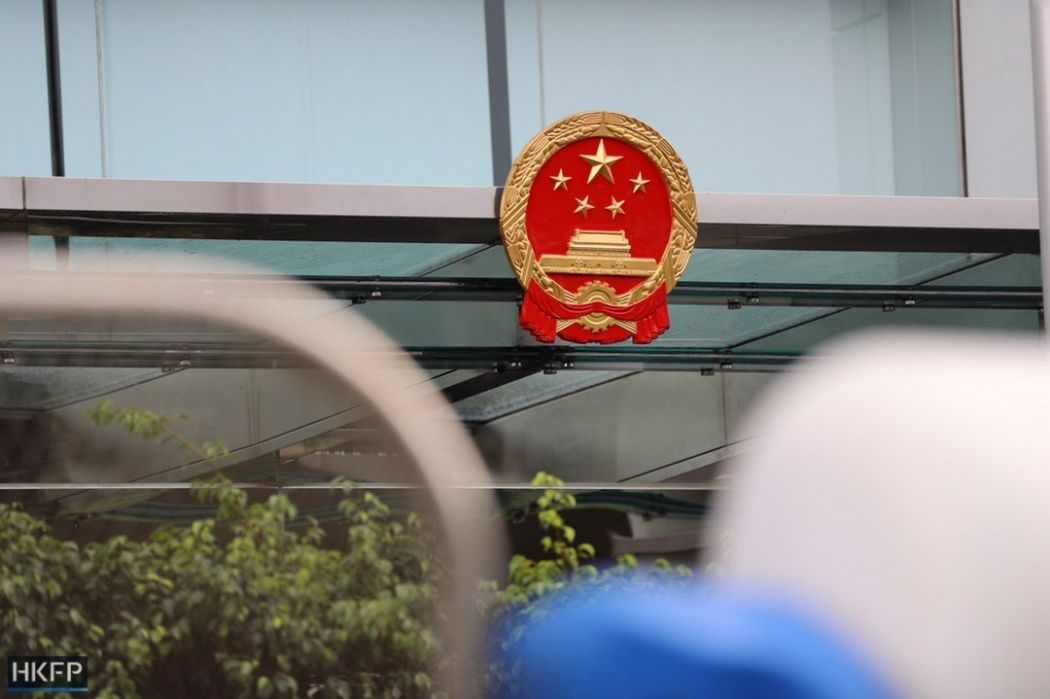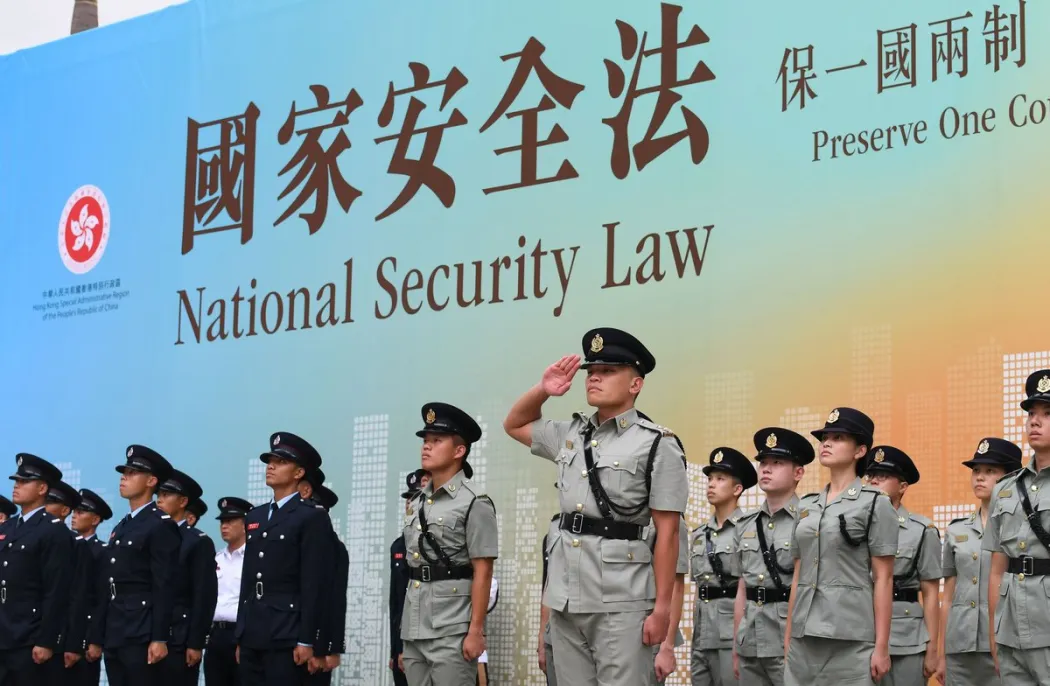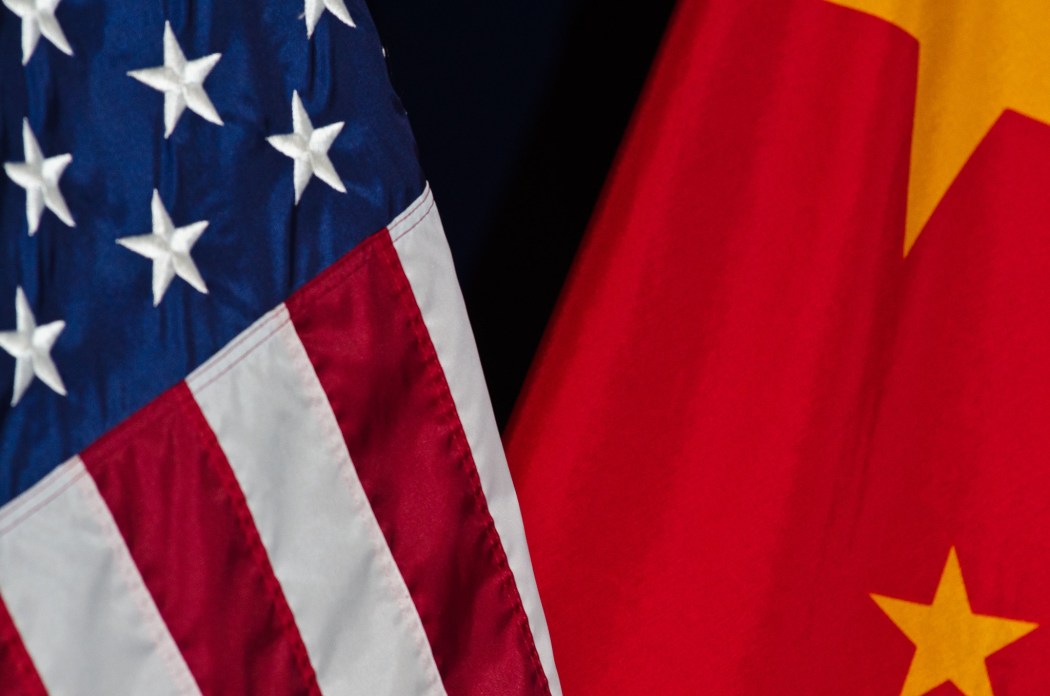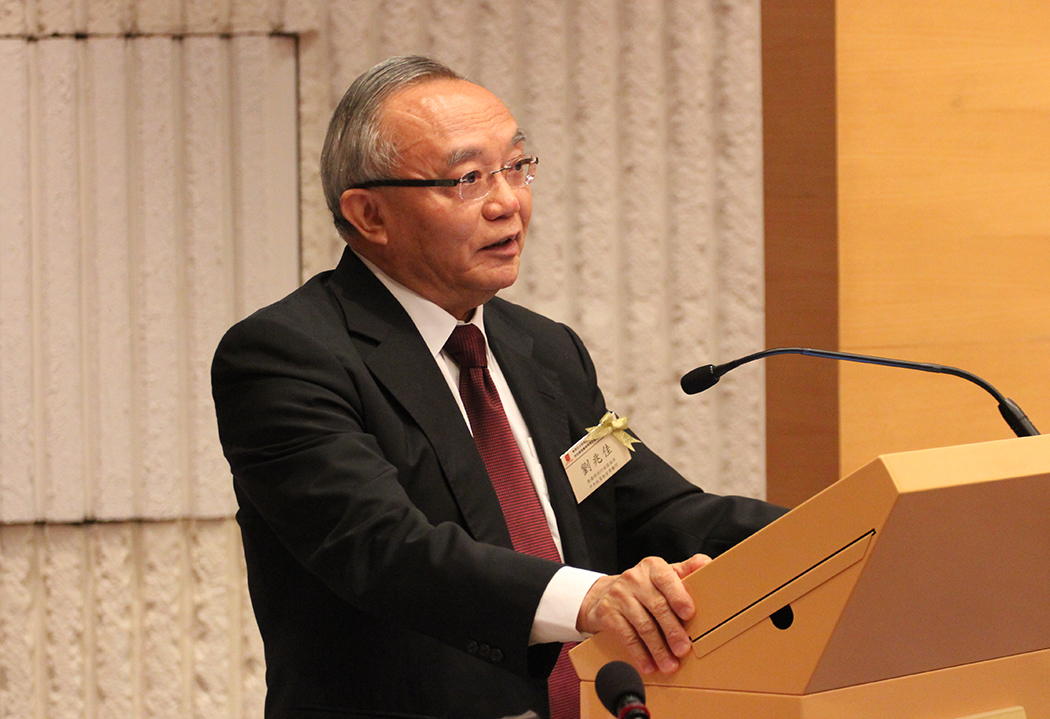The timing was curious, and so was the document itself. A few weeks ago, on September 24, China’s Ministry of Foreign Affairs issued a lengthy report with an unusual title: “Fact Sheet: U.S. Interference in Hong Kong Affairs and Support for Anti-China Destabilising Forces.”

At first glance, the headlines evoked images of dark secrets and underground foreign agents, unseen hands lurking in the shadows to manipulate and deceive unsuspecting Hongkongers and interested onlookers. Perhaps the mysterious “foreign force” actors routinely blamed for Hong Kong’s political troubles were now finally to be revealed and identified.
In fact, the information offered was about foreign agents and their agencies, but not the James Bond kind. The facts listed were neither new nor secret. All had been officially announced or publicly reported by US, Chinese, and other sources at every step along the way. So what message was Beijing trying to convey with this official compilation?
The Fact Sheet divides Beijing’s grievances into five categories:
- actions by the US President, Congress, and some of its members;
- the imposition of sanctions by the US government in response to Beijing’s June 30, 2020 promulgation of a National Security Law for Hong Kong;
- critical public statements referring to events in Hong Kong and the actions of its law enforcement personnel;
- shielding and supporting Hong Kong dissidents;
- colluding with other countries to exert pressure, interfere in Hong Kong affairs, and issue irresponsible joint statements.
The grievance list: Beijing’s case against Washington
Especially unwelcome in official Beijing eyes are the actions listed in Section One: Hong Kong-related legislation passed by the US Congress, as well as proposals and gestures by individual legislators.
Three bills were signed into law by President Trump: the Hong Kong Human Rights and Democracy Act of 2019, another act prohibiting the sale for police use of certain crowd control items; and the July 2020 Hong Kong Autonomy Act, authorising sanctions for officials responsible for violating Hong Kong’s promised autonomy.
All of these actions demonstrated official US support for Hong Kong’s 2019 protest movement. They included even the proposed award of Congressional Gold Medals honouring Jimmy Lai and several executives of his Apple Daily newspaper.
Section Two of the Fact Sheet focuses on the sanctions imposed specifically in response to the new National Security Law for Hong Kong. Several other actions also followed in response to the new law.

President Trump revoked the special trade status and preferential treatment that had been extended to Hong Kong. They were originally granted by the US in recognition of the autonomous status Beijing had promised Hong Kong — as a Special Administrative Region — when sovereignty was transferred from Britain back to China in 1997.
That promise had been written into the Sino-British Joint Declaration of 1984, and the Basic Law. This last was drafted and promulgated by Beijing. According to Article 5 of the Basic Law, it was to serve as Hong Kong’s governing document for 50 years after 1997.
The end of Hong Kong’s special status meant restrictions on exports of US defence equipment and high-tech products, as well as sanctions on central Chinese government and Hong Kong officials. Fugitive extradition agreements were terminated.
Additional sanctions were imposed on Chinese and Hong Kong officials in response among other things, to the summary disqualification of four Hong Kong Legislative Councilors in November 2020, and then after the dramatic police round-up on January 6, 2021.
On and after January 6, some 55 individuals were arrested in all. They had been participants in an informal pre-election preference poll. It was organised by local activists and political parties, as a means of trying to winnow the field of pro-democracy candidates for the coming September Legislative Council election.
The straw poll had been planned long before but went ahead as scheduled, in July, just days after the National Security Law went into effect. Over half a million of Hong Kong’s registered voters participated in the exercise. The council election itself was postponed and is now scheduled for this coming December.
Beijing used the intervening year to overhaul Hong Kong’s electoral system with the aim of preventing any such popular candidates from participating. They had been poised to make major gains in the September election.

The January 2021 transition in Washington, from the Trump Administration to that of President Joe Biden, brought no let-up and the sequence continued.
Further sanctions were imposed by Washington in response to the redesign of Hong Kong’s electoral system, announced by Beijing in March this year. The overhaul upended the system originally designed by Beijing and written into Hong Kong’s Basic Law.
In July this year, the US government issued a “business advisory” warning about the potential risks of doing business in Hong Kong’s new national security environment. More sanctions were imposed, focusing on central government officials including several members of Beijing’s representative Liaison Office here.
The new US Secretary of State, Antony Blinken, issued a less than laudatory statement, marking the one-year anniversary of Hong Kong’s new National Security Law.
Most detailed of all is the Fact Sheet’s Section Three, containing a long list of official statements from US government sources, pre-dating the National Security Law by over a year. The Fact Sheet calls them all “unfounded charges” and Bejing kept track of almost every one.
Concerned American citizens will at least be gratified to learn that American officials and diplomats have been paying attention and keeping such careful notes on all that has been happening here.
The chronicle of statements begins with one by then-US Consul General in Hong Kong, Kurt Tong. In a February 2019 interview, he expressed reservations about the Hong Kong government’s just announced plan to amend Hong Kong’s extradition arrangements. The proposed changes would have allowed the return to China of alleged criminal suspects for trial there, and triggered Hong Kong’s 2019 protest upheaval.
There followed a series of reports and statements about internal Hong Kong matters including the freedom of expression, rule of law, and erosion of Hong Kong’s promised autonomy under pressure from Beijing.
On June 19, 2019, the Speaker of the US House of Representatives, Nancy Pelosi, addressed a meeting hosted by the Christian Science Monitor. She ignored the violent turn that Hong Kong’s anti-extradition law protests had just begun to take. In fact, she lauded the protest demonstrations and “thus openly urged rioters to take illegal and violent actions against the central government and the HKSAR government.”
In July 2019, the chairman of the US House of Representatives Foreign Affairs Committee, Eliot Engel, issued a statement on police brutality in Hong Kong, thereby tarnishing Hong Kong’s international reputation.

On September 28, 2019, the US Congressional-Executive Commision on China issued a statement commemorating the fifth anniversary of the onset of Hong Kong’s 2014 Umbrella-Occupy Movement street occupations.
These marked the culmination of year-long preparations for the Occupy Central civil disobedience campaign. Its cause was universal suffrage elections as promised by Beijing along with much else in Hong Kong’s Basic Law constitution.
In October, November, and December 2019, President Trump, Vice President Mike Pence, Speaker Pelosi, and the new Consul General in Hong Kong, Hanscom Smith, all made public statements about Hong Kong. These all sympathised with the protest movement in relation to China’s original promises about Hong Kong’s post-1997 autonomy.
Beginning in May 2020, after Beijing announced the impending National Security Law, US statements escalated. Beijing’s grievance list includes media interviews given by Hanscom Smith to the South China Morning Post and Ming Pao daily; and Nancy Pelosi’s tweet on the arrest of Martin Lee, one of the Hong Kong democracy movement’s founding fathers.
Missing from the list, however, was the Consul General’s comment, aired during a local evening newscast. Soon after its promulgation he called the new National Security Law a “tragedy” for Hong Kong.
On the evening of June Fourth this year, the US Consulate on Garden Road even went so far as to display lit candles in windows clearly visible from the street. This gesture of defiance was “in support of the so-called candlelight vigil staged by those who are opposed to China and attempt to destabilise Hong Kong.”
The reference was to the annual June Fourth candlelight vigil, marking the June 4, 1989 crackdown that bloodily cleared Beijing’s Tiananmen Square of protesters. The traditional vigil, held in Hong Kong’s Victoria Park each year since then, has been banned for the past two years, officially due to the coronavirus pandemic.
Direct reference to China’s own democracy movement and the 1989 crackdown that ended it are banned in mainland publications, which accounts for the Fact Sheet’s cryptic wording.

Section Four grievances concern official US support for leading members of Hong Kong’s democracy movement. In March 2019, several prominent individuals visited Washington, met US officials, and were given opportunities to publicise their message, which allegedly included demands for Hong Kong independence.
In May 2019, a group that included the Hong Kong Democratic Party’s Martin Lee and James To, the Civic Party’s Margaret Ng, and Demosisto’s Nathan Law visited Washington. They met with many American officials and urged support for Hong Kong’s developing campaign against the Hong Kong government’s extradition law proposals.
In July 2019, Apple Daily’s Jimmy Lai visited Washington, and met with many officials. They discussed the extradition law proposals and the erosion of Hong Kong’s autonomy.
In August, Demosisto leaders Joshua Wong and Nathan Law, allegedly supporters of Hong Kong independence, met with US Consulate officials in Hong Kong to discuss human rights and democracy.
In September, the “so-called Hong Kong Democracy Council” was inaugurated in Washington, allegedly to lobby for Hong Kong independence. Heading the council was activist Samuel Chu, son of the Reverend Chu Yiu-ming, one of the three co-founders of the original Occupy Central movement launched in 2013.
In October 2019, US Senator Ted Cruz visited Hong Kong and met several local pro-democracy leaders including Jimmy Lai. Also in October, Lai, Martin Lee, and others again visited Washington. All are characterised as being “opposed to China” and working to “destabilise Hong Kong.”
In March 2020, Consul General Hanscom Smith met Joshua Wong and others, who urged the US to impose sanctions on Hong Kong officials and police leaders. In April 2020, US Secretary of State Mike Pompeo issued a statement making what were termed groundless accusations against the police for arresting people who oppose China and try to destabilise Hong Kong.
In July, soon after Hong Kong’s National Security Law was promulgated, Mike Pompeo met Nathan Law in London. Law had just fled Hong Kong and he called on the US government to exert more pressure on China. On January 6, 2021, Pompeo issued a statement expressing concern over the mass arrests of those who had participated in the informal primary election exercise the previous July.
On January 31, 2021, nine members of the US Congess signed a letter nominating the “pro-democracy movement in Hong Kong” for the 2021 Nobel Peace Prize.

Finally, Section Five accused Washington of colluding with other countries to exert pressure, team up to interfere in Hong Kong, and “make irresponsible comments by such means as joint statements.”
In response to Beijing’s May 2020 announcement about the Hong Kong National Security Law’s imminent promulgation, the US had called for an urgent meeting of the United Nations Security Council. Foreign Ministers of the US, United Kingdom, Canada, and Australia issued a joint statement condemning the proposed law.
In June, after the law was promulgated, the US and several other countries issued a joint statement urging Beijing to reconsider. The joint statement said the new law violated Beijing’s original promise of a “high degree of autonomy” for Hong Kong.
There follows a list of such joint statements by Western countries issued between August 2020 and July 2021, after follow-up decisions by Beijing based on the new security law norms. Those decisions included the disqualification of Legislative Councillors, the January 2021 mass arrests in the “primary elections” case, and the revamp of Hong Kong’s electoral system.
In May and June, the Group of Seven nations issued what were termed irresponsible and groundless comments on internal Hong Kong matters. In June and July, during the 47th session of the United Nations Human Rights Council, the US and 43 other countries signed a statement expressing concern over the violation of human rights in Hong Kong.
On July 10, 2021, the US Department of State website posted a statement from 21 countries, all members of the Media Freedom Coalition, expressing concern about the arrests in Hong Kong and closure of Apple Daily.
Why now? A timely lesson in the logic of national security rule
Based on the old adage that the best defence is a strong offence, the grievance list suggests that Beijing decision-makers did at least get the point. They know their “Hong Kong solution” received a bad press and are acknowledging it in their own way.
Because they cannot live with the consequences of their original Basic Law promises, and know no way to govern other than their own — and admitting this would be a sign of weakness –- the Fact Sheet is their answer. Stand tough, concede nothing, and push back against the critics. That means no apologies and no retreat — at least for now.
But there are conventions built into the old mass movement campaign style of introducing major disruptive policy initiatives, and that style still holds sway. One such custom is the euphemism routinely used at the start, as it was here just before the National Security Law was introduced in June last year. The campaign will target “only a very few” wrongdoers, said official commentators with soothing reassurance.

Later, after the whole society has been drawn into the campaign and its goals are achieved, then there can be a retrenchment. Don’t worry about going to extremes, says the old campaign motto. As long as it’s really a mass movement of the great majority, once wrongs have been righted and the new standards established, any mistakes created in the meantime can be corrected afterwards.
Based on this old Maoist “law of the mass movement” logic, Hong Kong can look forward to a “new normal” respite in due course. But it cannot be seen to come in response to the urging of foreign governments.
Meanwhile, Beijing is intent on going full steam ahead until all that is wrong here has been set right, and the pro-democracy opposition is silenced. The time to declare victory has not yet arrived, although promoters are already looking forward to the day and sketching in the outlines of a new narrative that will herald the new normal.
Chief Executive Carrie Lam says the public is content now that peace has been restored. Carrying this line of reasoning a step further, it may soon be possible to declare that really only a very few misguided individuals were actually behind the protests and their goals.
Professor Lau Siu-kai is already declaring the alleged attempt at a “colour revolution” or regime change to be a failure because the resistance collapsed so quickly. Protesters have “meekly” given up their struggle and dismantled their organisations; society is returning to its basic state of “political conservatism.”

The assumption about Hong Kong’s endemic state of political inertia has been reflected in all his work dating back to the 1980s, and in British colonial assumptions as well. It was also reflected in Beijing’s 1990s insistence that Hong Kong had always been an “economic city,” and should remain that way, the last British governor’s political experiments notwithstanding.
Heralding the return to normalcy, Lau writes that Hong Kongers “remain largely unperturbed by the mass arrests, prosecutions, convictions and imprisonment of the ringleaders and major participants.” All of this must be a great disappointment to their “foreign sponsors who set great store on them as their political agents.”
With a warning of more to come
But before the national security drive runs its course and can emerge victorious to proclaim Hong Kong’s new normal, one additional major task must be completed. The key words in Lau’s account are “foreign sponsors” and “political agents.”
They are apparently to become the next and final targets of the official post-2019 clean-up drive. Soon after the new security appointments were announced in June, there was such talk.
The appointments included Secretary for Security John Lee who was promoted to become Chief Secretary for Administration, the number two position in Hong Kong’s government or deputy to the Chief Executive. Police Commissioner Chris Tang moved up to replace Lee as head of the Security Bureau.
In line with these promotions, government insiders were letting it be known that the time had come to revive local national security legislation, as mandated by Article 23 of Hong Kong’s Basic Law.
This legislation had been on the shelf since 2003, when the Hong Kong government’s first attempt to force its passage triggered the onset of the political resistance movement that Beijing leaders think they have now finally found the means to extinguish.
Soon after his new appointment as Secretary for Security was announced, Chris Tang said the Article 23 legislation must be revived and passed as soon as possible. By that he means within the coming four-year term of the reorganised Legislative Council to be elected this coming December.
The aim is to deal with crimes not covered by Beijing’s June 2020 National Security Law. The new law will target secession, subversion, terrorism or political violence, and colluding with foreign forces. In practical terms, all kinds of actions are already being prosecuted in the name of these crimes. What possible need could there be for more?
Tang replied that the new Article 23 legislation would focus on the foreign angle, that is, “foreign force” intrusions. Article 23, as mandated in Hong Kong’s Basic Law, covers acts of treason, secession, sedition, subversion against the central government, theft of state secrets, and preventing foreign political organisations or bodies from conducting political activities here, as well as preventing local political bodies from establishing ties with foreign counterparts.
In June, the talk of an Article 23 revival was said to derive from tensions in the Beijing-Washington relationship. Hong Kong’s defences must be strengthened accordingly.
Tang elaborated further at the time of the Fact Sheet’s publication. He was forthright in declaring that espionage activities conducted by foreign state actors will be the main focus of the new Article 23 legislation under his watch. He blamed such activities for provoking the 2019 riots and anti-government protests.
His allegations reflected those that have derived from Beijing sources dating back at least to 2013-14. The message then was that the British and American Consulates here were behind the growing agitation for universal suffrage elections evident in the developing Occupy Central campaign.

Later, rumours circulated that the Americans were giving Occupy Central activists mobile phones, which explained how they could be so well connected with one another in different parts of the city.
In October 2014, American bankers were said to be handing out hundred-dollar bills so activists could buy the tents they were using to occupy the streets. And most recently, the July 2020 pre-election primary voters were allegedly paid to turn out and register their candidate preferences.
During his recent exclusive interview with the South China Morning Post, Tang said the 2019 protests were well orchestrated with all kinds of supplies, helmets, and the like, plus support from the foreign media. He said all this could only come from “state-level organisations” intent on regime change, and on using Hong Kong as a base to threaten China.
Hence, despite the strictures of the new National Security Law, Tang said there was a need to focus more specifically on espionage — meddling by foreign agents at work here in Hong Kong itself. He calculated that the public would be more supportive of such legislation now than in 2003, because everyone had seen the damage done by foreign force meddling in 2019.
The Fact Sheet is already providing a useful source of information to reinforce this line of argument, suggesting that it was meant as much for local use as for any impact it might have on Beijing’s international critics.
That the demands of Hong Kong’s democracy movement have never veered from the original Basic Law promises — about universal suffrage elections plus all the basic rights and freedoms — has been completely erased from the emerging new official narrative.
Without the opportunistic meddling of foreign agents and their Western government sponsors, Hongkongers apparently could never have managed such an ambitious project on their own.
Support HKFP | Policies & Ethics | Error/typo? | Contact Us | Newsletter | Transparency & Annual Report | Apps
| HKFP is an impartial platform & does not necessarily share the views of opinion writers or advertisers. HKFP presents a diversity of views & regularly invites figures across the political spectrum to write for us. Press freedom is guaranteed under the Basic Law, security law, Bill of Rights and Chinese constitution. Opinion pieces aim to point out errors or defects in the government, law or policies, or aim to suggest ideas or alterations via legal means without an intention of hatred, discontent or hostility against the authorities or other communities. |
Help safeguard press freedom & keep HKFP free for all readers by supporting our team

More HKFP OPINION:
HKFP has an impartial stance, transparent funding, and balanced coverage guided by an Ethics Code and Corrections Policy.
Support press freedom & help us surpass 1,000 monthly Patrons: 100% independent, governed by an ethics code & not-for-profit.










